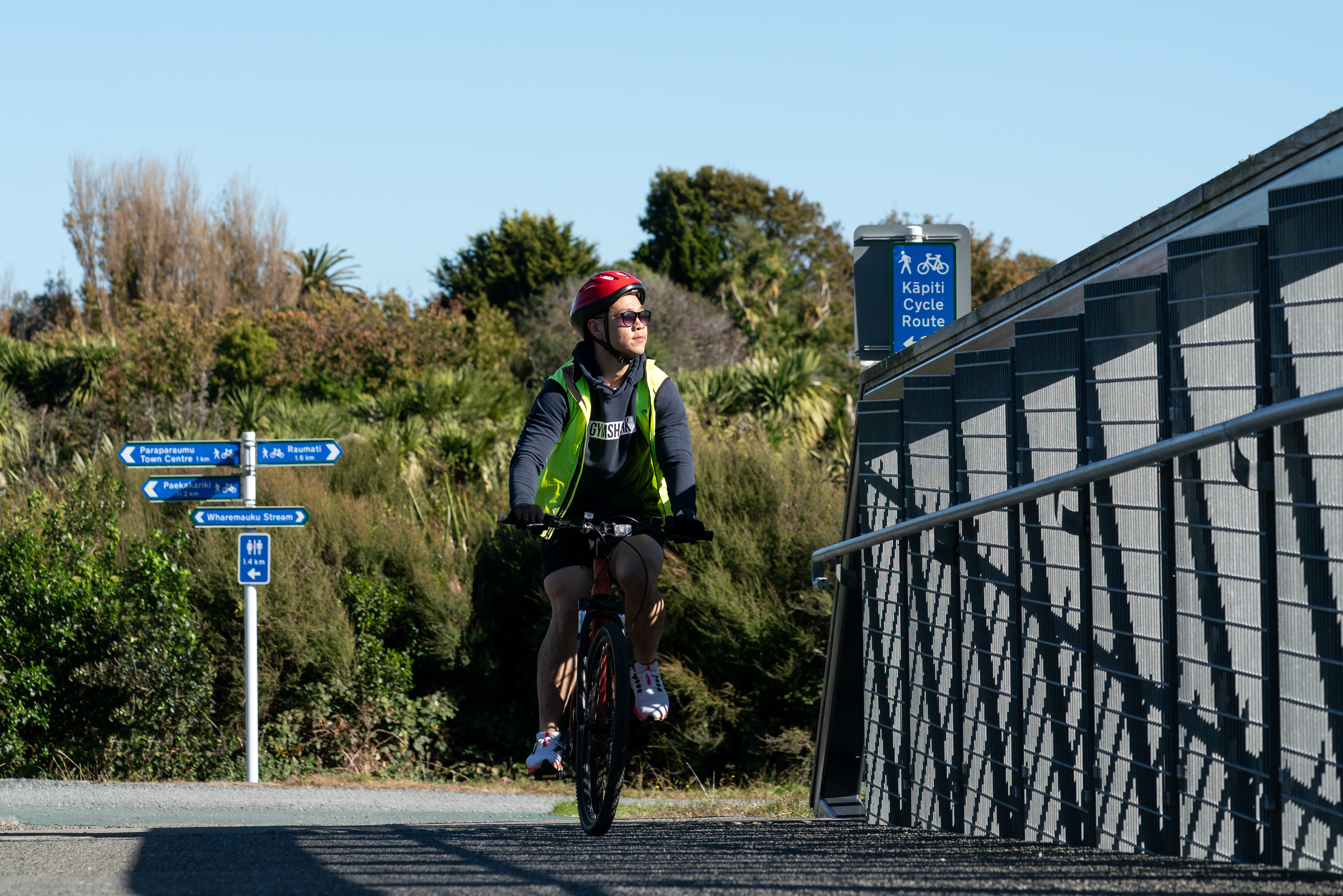Kāpiti Coast to go car-free (for a day)
17 Sep 2024, 2:07 PM
We're encouraging Coasties to leave the car at home for the inaugural Kāpiti Coast Car-Free Day on Monday 23 September.
It coincides with World Car-Free Day, which is celebrated on or around 22 September each year, but a Sunday feels like cheating, so we’re rolling it out on Monday instead!
So, leave the car keys behind and jump on a bike, take a walk, or catch a bus instead!

Ditch the car and ride your bike to work on Monday
World Car-Free Day
So, what is World Car-Free Day and why are we jumping on the wagon?
World Car-Free Day is an international movement that took off in 2000, to encourage people to find alternative modes of transport where they can. The day helps raise awareness of how our travel impacts the environment - transport is the fastest growing source of fossil-fuel CO2 emissions, the largest contributor to climate change. Using active transport or public transport can also save you money and improve your health and wellbeing!
Did you know:
- Transport makes up 37 percent of a typical New Zealander’s carbon footprint.
- Approximately 78 percent of trips to work in Aotearoa New Zealand are done by car.
- If everyone who commutes to work by car took a more sustainable mode of transport once a week, we would save 92 Olympic swimming pools worth of petrol each year!
- A recent survey of Aotearoa commuters around the country found that cyclists had the highest wellbeing score, and drivers had the lowest.
Sources: Stats NZ, Waka Kotahi, Ministry of Transport, EECA
The inspiration
The oil crisis inspired the original car-free days!
Car-free days aren’t a new thing. Many will remember that during the oil crisis of the 1970s, mandatory ‘carless’ days were implemented as a demand reduction scheme.
Between 30 July 1979 and May 1980, owners of petrol-powered, private vehicles were prohibited from driving that vehicle on a designated day each week. The no-drive days were indicated by a coloured sticker on the windscreen, with exemption stickers issued for specific purposes.
Other demand reduction measures included reducing the speed limits by 20 kilometres/hour, or banning the sale of petrol on weekends for everyone except emergency services.
These days going car-free is a choice not a chore, but the potential benefits are the same – cost savings, improved health and wellbeing, less air pollution, quieter streets, reduced carbon emissions, and less traffic congestion for those who do still need to drive!
Be a carbon zero hero for a day!
Choose a cleaner commute for the climate (if you can). Even small changes can make a huge dent in our carbon emissions. Switch the car for active transport such as biking or walking, catch a bus, or even work from home if that’s an option for you.
If you rely on a car for your commute because alternatives aren’t feasible or you’ve got to contend with the school run, appointments or activities, see if you can park further away and replace part of your journey with walking. Or swap out a trip to the shops or leave the car at home on a different day – it all adds up.
Check out the links below for a map of the excellent walking and cycling trails we have right here on the Kāpiti Coast, and information on the public bus and train services.
For more info, including how to register your workplace to receive further advice on reducing your organisational carbon emissions, check out the Gen Less website.